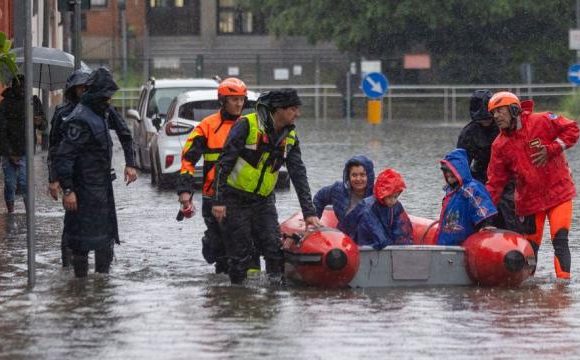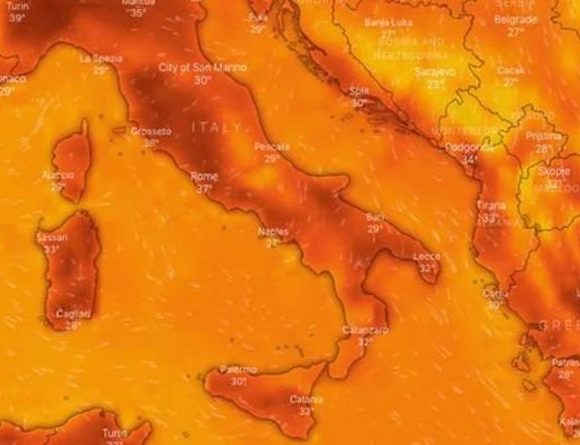
Storms and heavy rainfall have caused significant flooding in northern Italy, with cities like Padua and Vicenza heavily affected. Emergency services have been using dinghies to rescue residents, and footage shows cars floating in the streets. The governor of the Veneto region described the severe weather as a “water bomb.” In contrast, southern Italy, including Sicily, is experiencing an unusual heat wave with temperatures reaching up to 35°C.
Professor Marco Marani from the University of Padua, an expert on climate change, told Corriere del Veneto that extreme weather events are becoming more frequent due to global warming. In Padua, the banks of the Muson dei Sassi river collapsed, causing severe flooding. In Borgo Mantovano, Lombardy, a freight train was overturned by gusts up to 200 km/h. Milan saw 130 mm of rain in one day, leading to flash floods, the most intense May rainfall in over 170 years.
The Veneto region declared a state of red alert, particularly between Vicenza and Verona, where 70 mm of rain fell in 30 minutes, causing water basins to overflow. One person is missing in Como after a bridge collapse.
In the south, Sardinia is experiencing dry conditions, adversely affecting wheat harvests, and water restrictions are expected later in the summer. Prof. Marani emphasized the scientific evidence linking increased frequency of extreme weather events to climate change, underscoring the need to revise water defense calculations and manage climate change effectively.
A recent State of the Climate report by the EU climate agency Copernicus and the World Meteorological Organization highlighted the urgency of climate action and improved flood defenses, noting that in 2023, one-third of European rivers breached high flood thresholds, with 16% surpassing severe levels.
Picture Courtesy: Google/images are subject to copyright



